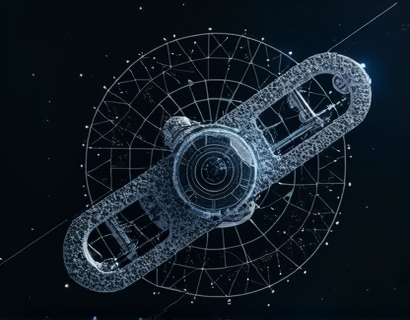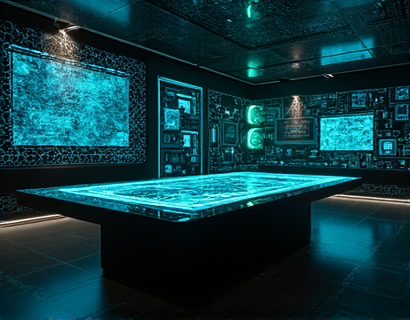Unlocking the Past: Exploring Ancient Wisdom and Cultural Heritage for Modern Insight
The journey into the realms of ancient wisdom and cultural heritage is a profound and enriching experience that bridges the gap between the past and the present. This exploration offers invaluable insights that can inform and inspire contemporary society, providing a deeper understanding of human history and the enduring lessons it holds. For history enthusiasts and cultural seekers, delving into the rich tapestry of ancient civilizations is not merely an academic pursuit but a vital connection to our shared human legacy.
Ancient civilizations, from the sprawling empires of Mesopotamia to the sophisticated societies of the Indus Valley, have left behind a wealth of knowledge and cultural artifacts. These remnants, whether in the form of texts, monuments, or oral traditions, offer a window into the minds and lives of our ancestors. By studying these sources, we can gain a more nuanced understanding of the development of human societies, the evolution of ideas, and the common threads that bind us across time and space.
The Importance of Ancient Wisdom
Ancient wisdom is a treasure trove of philosophical, scientific, and spiritual insights that have shaped human thought for millennia. The Greeks, for instance, made groundbreaking contributions to philosophy, mathematics, and medicine, many of which continue to influence modern thought. Socrates, Plato, and Aristotle laid the foundations for Western philosophy, while Euclid's geometric principles and Hippocrates' medical ethics remain relevant today.
Similarly, Eastern traditions such as Buddhism and Taoism offer profound wisdom on living a balanced and harmonious life. The Bhagavad Gita, a sacred Hindu text, provides guidance on duty, righteousness, and the path to spiritual enlightenment. These ancient teachings emphasize the importance of inner peace, ethical living, and the interconnectedness of all things, lessons that are as pertinent today as they were when first articulated.
Cultural Heritage as a Source of Inspiration
Cultural heritage, encompassing the customs, traditions, and artifacts of past societies, is a rich source of inspiration for modern times. The art, architecture, and literature of ancient civilizations continue to captivate and inspire artists, architects, and writers. The intricate carvings of Angkor Wat, the monumental sculptures of Easter Island, and the poetic elegance of ancient Chinese poetry are testaments to the creativity and ingenuity of our forebears.
Moreover, cultural heritage provides a sense of identity and continuity, helping communities to understand their roots and preserve their unique traditions. In an increasingly globalized world, maintaining a connection to one's cultural heritage is crucial for fostering a sense of belonging and pride. It also promotes cultural diversity and mutual respect, essential values in our interconnected world.
Bridging the Gap Between Past and Present
The study of ancient wisdom and cultural heritage is not just an academic exercise; it has practical applications in various fields. In education, incorporating historical and cultural perspectives can enrich the learning experience, making subjects more engaging and relevant. For example, teaching history through the lens of ancient civilizations can help students understand the development of modern political systems, social structures, and technological advancements.
In the realm of psychology and mental health, ancient philosophies offer timeless advice on coping with life's challenges. Mindfulness practices rooted in Buddhist tradition, for instance, have been shown to reduce stress and improve mental well-being. Similarly, the Stoic philosophy of ancient Rome provides practical strategies for managing emotions and maintaining inner peace in the face of adversity.
Preserving and Sharing Ancient Knowledge
The preservation and sharing of ancient knowledge are vital for ensuring that future generations can benefit from the insights of the past. Archaeological excavations, scholarly research, and digital archiving are some of the methods used to uncover and document historical artifacts and texts. These efforts not only help to protect cultural heritage but also make it accessible to a broader audience.
Digital platforms play a crucial role in this process, offering a way to disseminate information widely and efficiently. Online databases, virtual museums, and educational resources enable people from around the world to explore ancient wisdom and cultural heritage at their own pace. These tools democratize access to knowledge, breaking down barriers and fostering a global appreciation for our shared history.
Challenges in Preserving Cultural Heritage
Despite the importance of preserving cultural heritage, several challenges hinder these efforts. Natural disasters, war, and environmental degradation can destroy irreplaceable artifacts and sites. Additionally, the looting and illegal trade of cultural artifacts pose significant threats to the preservation of our shared heritage. Climate change also poses a growing risk, as rising temperatures and sea levels threaten to submerge or damage historical sites.
To address these challenges, international cooperation and robust legal frameworks are essential. Organizations such as UNESCO work to protect and preserve cultural heritage sites, promoting awareness and providing support for conservation efforts. Community involvement is also crucial, as local populations often have a deep connection to and knowledge of their cultural heritage.
The Role of Technology in Heritage Preservation
Technology plays an increasingly important role in the preservation and study of ancient wisdom and cultural heritage. Advanced imaging techniques, such as 3D scanning and photogrammetry, allow for detailed documentation of artifacts and sites without causing damage. These digital models can be used for research, education, and even virtual reconstructions, making it possible to explore and understand ancient environments in a immersive way.
Furthermore, artificial intelligence and machine learning are being employed to analyze large datasets of historical texts and artifacts, uncovering patterns and insights that might otherwise go unnoticed. These technologies not only enhance our understanding of the past but also make the process of preservation and study more efficient and effective.
Conclusion
Exploring ancient wisdom and cultural heritage is a journey that enriches our understanding of human history and provides valuable insights for the present and future. By bridging the gap between the past and the present, we can draw on the knowledge and experiences of our ancestors to navigate the complexities of modern life. Whether through scholarly research, educational initiatives, or technological innovations, the preservation and sharing of ancient wisdom remain a vital endeavor for fostering a more informed and culturally rich society.










































